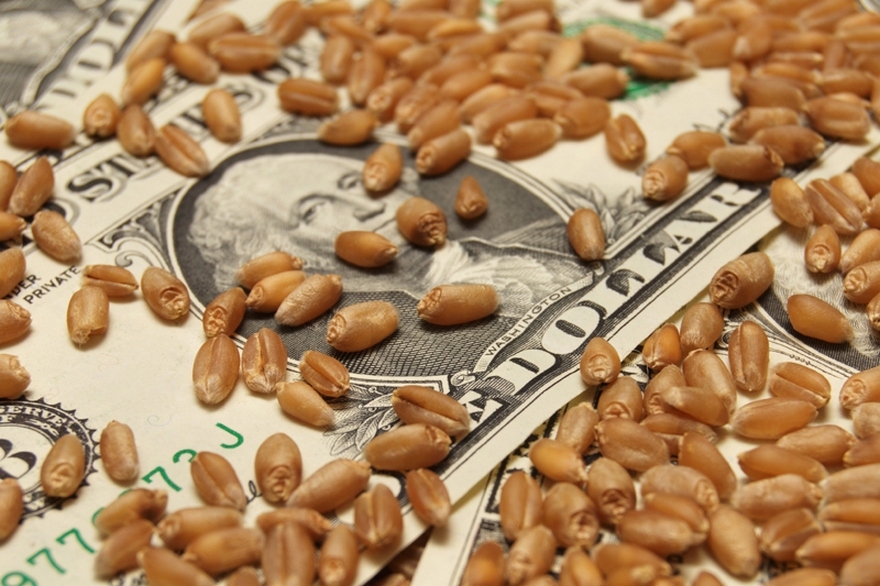Wheat quotes rose 2.5% amid escalation in the Middle East

The increasing probability of an open war between Iran and Israel with the involvement of other countries in the conflict led to a sharp increase in wheat exchange prices.
Yesterday, December futures rose:
- by 2.6% to $220/t - for soft winter SRW wheat in Chicago,
- by 2.5% to $219.8/t - for hard winter HRW wheat in Kansas City,
- by 2.1% to $233.2/t - for hard spring HRS-wheat in Minneapolis,
- by 2.4% to €227.5/t or $251.6/t - for wheat on the Paris Euronext.
The increase in prices for European wheat helps to increase exports from Ukraine and the Russian Federation, while supplies of wheat from the EU are decreasing.
According to the European Commission, in 2024/25 MR (as of September 29), the EU exported 6.14 million tons of wheat, which is 35% less than last year's pace.
Export spot prices for French wheat remain at $245-250/t FOB, while Russian wheat is offered at $223-225/t FOB.
In 2024/25, the Russian Federation exported 15.4 million tons of wheat, in particular, in September - 5.286 million tons, which is 9.5% and 16% lower than the same figures last year. At the same time, deliveries to Egypt in September increased compared to last year by 29% to 1.335 million tons, and to Algeria by 2.8 times to 453 thousand tons. We will remind that in 2023/24 MR, almost 70% of the wheat imported by Egypt was delivered from the Russian Federation
According to the FAS USDA forecast, in 2024/25 MR, Morocco will increase wheat imports from 6.24 to 7.5 million tons compared to the previous season, as due to severe drought, its own wheat harvest will decrease from 4.16 to 2.47 million tons, and barley - from 1.35 to 0.66 million tons.
European exporters continue to lose North African markets, and the Russian Federation, against the background of reduced demand from traditional buyers - Turkey, Iran and Pakistan (which have harvested good harvests of their own), is actively increasing supplies to North African countries, lowering prices to increase sales.


